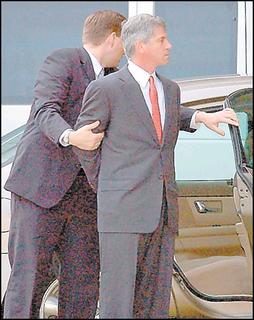
I saw an interesting article in the San Francisco Chronicle about Wells Fargo's latest product, Wells Fargo Select Identity Theft. For $12.99 a month, they provide monitoring of your credit file and will assist you if you become a victim. There are many of these products floating around these days. Wells is offering this in partnership with Trilegiant, a large marketing firm, which offers it's own identity theft service.
According to the article, Wells Fargo has had it's own woes with security breaches in the past two years. Wells Fargo has consistently refused to disclose how many people were put at risk, citing that it might jeopardize criminal investigations underway.
In April, they told former customers of Strong Financial, a recent Wells Fargo acquisition, that their personal information was sent to others due to an envelope stuffing error. Shortly, after the acquisition, they revealed that a binder full of Strong's customer information was stolen from a bank employee's car.
In March 2004, they lost 35,000 customer's information from computer theft at a bank office.
In February 2004, more computer theft occurred when 38,000 loan files were stolen from another rental vehicle driven by employees of Wells Fargo.
In November 2003, 201,500 customer's data was stolen from a bank consultant.
In October 2003, they hired a convicted felon as a temp worker, who they later fired, but was able to access the bank's website via a shared password and used customer's information for identity theft.
In an internal memo, Wells Fargo's CEO, Dick Kovacevich estimated that 70 percent of their remote data has some exposure to theft. Not sure, how they came up with that, if they give the wrong person access, I would imagine the percentage could be much higher.
This article made the interesting correlation that this amounts to exposing about 700,000 customers, which probably need this service. $12.99 x 12 x 700,000 equals $109,116,000 a year in additional revenue. They do claim they offer it free to their victims, but aren't clear as to if the free service is as good as the paid one they are now offering.
It's probably not fair to single Wells Fargo out. There are a lot of products appearing to protect people from identity theft. There have also been numerous data breaches in the recent past. With the increased sophisitication of the criminals out there, we need to invest more resources protecting the points of compromise and punishing those who are guilty of committing these crimes.
To link to the artice in the San Francisco Chronicle, click on the title.
Identity Theft Protection is starting to become a growing business. If you choose to purchase some, I would recommend that you shop around and compare services. It's a sad commentary that again, the cost of it is being put on the people, who are potentially victims.
There are free services, including laws mandating that the credit bureaus have to provide free reporting. Here is a link to a non profit organization (Identity Theft Resource Center) that has a lot of resources.
http://www.idtheftcenter.org/index.shtml

